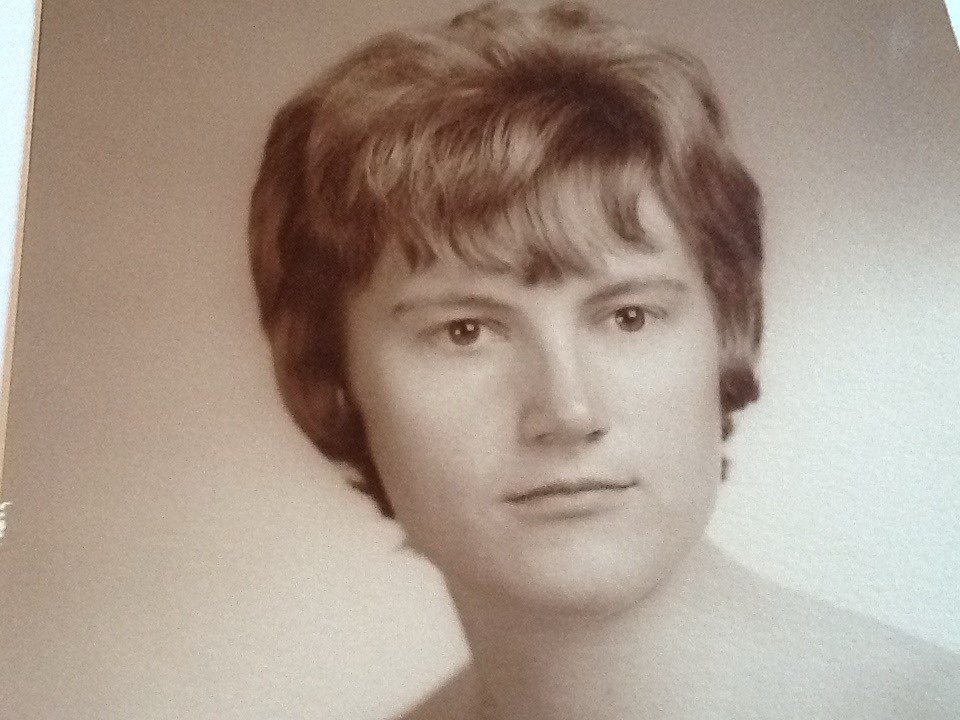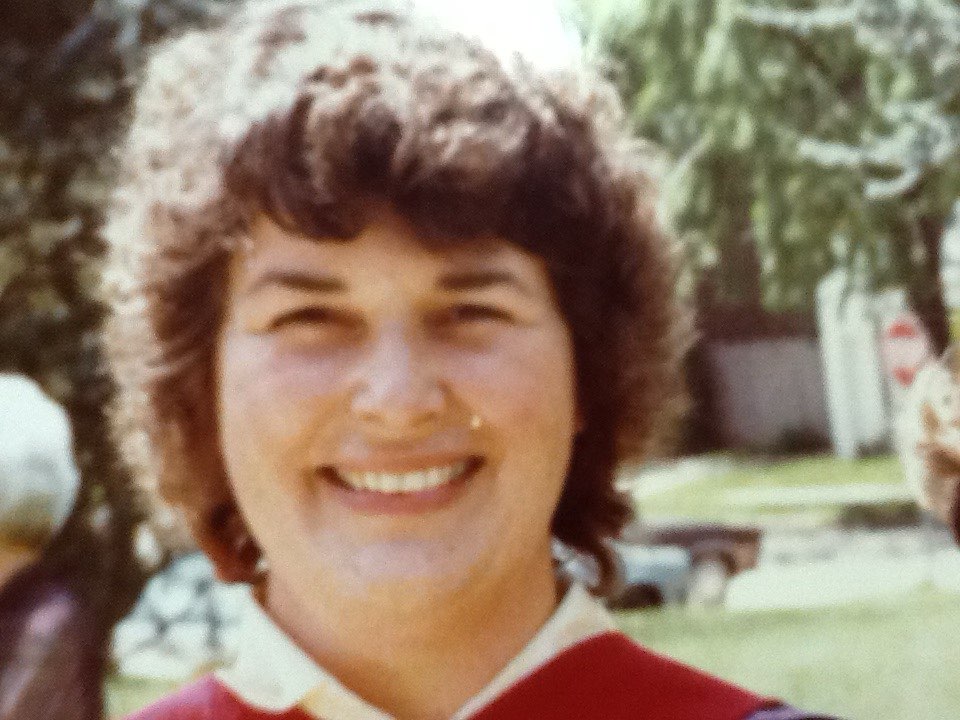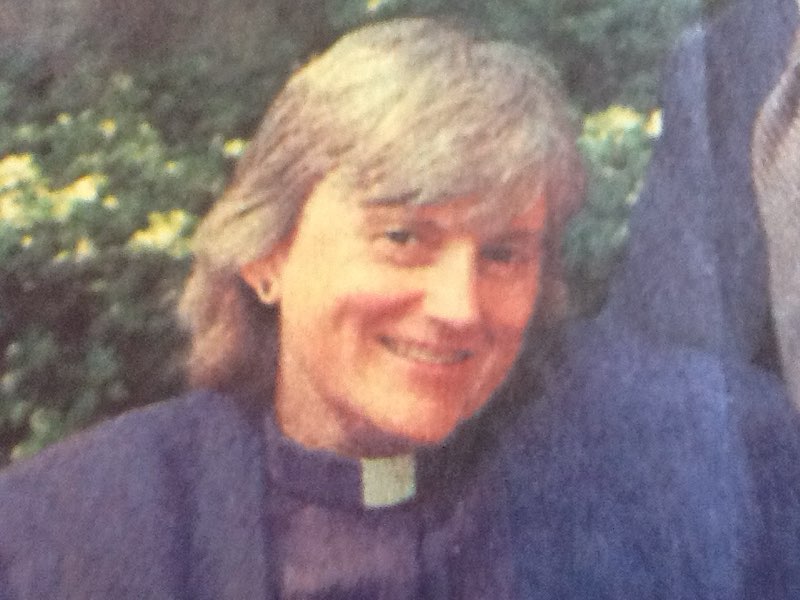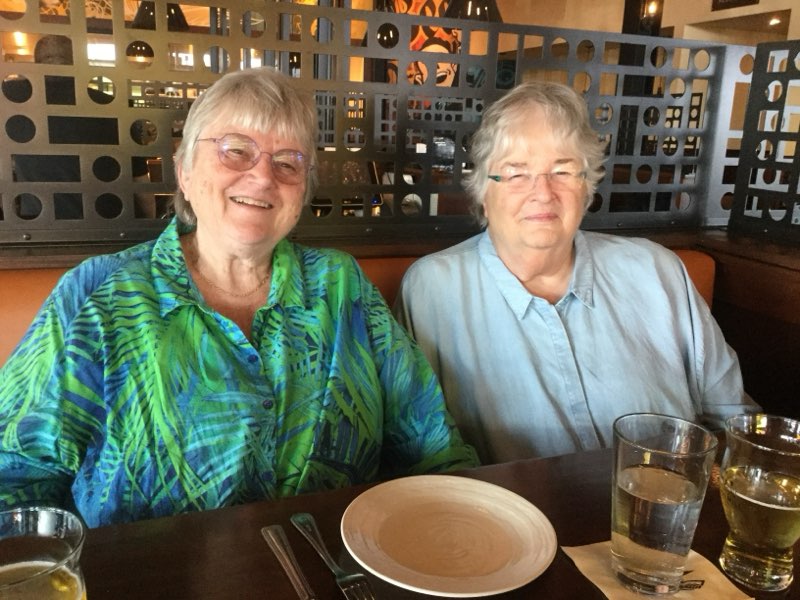
Bishop Susan Morrison
Biography
Bishop Susan Murch Morrison was born in January 1943 in Dunkirk, New York. A brother was born two-and-a-half years later and a sister ten years later. After service in World War II, Morrison’s father went to university and tried different jobs before settling in at the DuPont Company. The family moved to Delaware when Susan was starting middle school. While the family was not actively religious, Susan recalls experiencing a strong call to mission work when she was young.
She decided to enroll at Drew University in September 1961 for her undergraduate studies because the school had some religious affiliation. The campus minister Jim Sessions had a significant impact on Susan’s development during her time there. She spent a semester studying political science in London. She also participated in Civil Right activities, traveling to Alabama to assist with voter registration. When she shared her call to mission work with Sessions, he encouraged her to explore the US-4 mission program with the United Methodist Board of Global Ministries. Susan was accepted into the program and was sent with a team to work in a community outside Rio de Janeiro in Brazil. For three and a half years they lived with Brazilian families and provided training in literacy, health care and community development. That experience began to broaden Morrison’s worldview and global perspective.
 Senior year at Drew University
Senior year at Drew University
Upon her return to the U.S., Morrison traveled around the country speaking on campuses about her mission experience. She decided to enroll in Boston University School of Theology in the fall of 1969. During her seminary years she spent one summer organizing for welfare rights in Minnesota and another summer in Cuernavaca, Mexico studying Spanish. She was president of the student body and got to know the resident Bishop James Mathews who became a mentor. She graduated magna cum laude in 1972.
Morrison was the first woman ordained to be a deacon in the Peninsula-Delaware Conference by Bishop John Wesley Lord. She received a fellowship to spend the year following seminary studying at the Facultad de Teologico in Buenos Aires and with the Benedictine order in Rome. Bishop James Matthews had moved to the Baltimore-Washington Conference. Morrison reached out to him for a pastoral position there since he was known to be supportive of women clergy and the conference had more international elements. She was ordained an elder by Bishop Matthews and appointed to Marvin Memorial United Methodist Church in Silver Spring, Maryland.
The seven years Morrison spent on the pastoral staff of Marvin Memorial was an immersive learning experience in congregational ministry. She had little prior experience being part of or leading a congregation. During this time she also enrolled in and completed the Doctor of Ministry program at Wesley Theological Seminary. In 1978 she was appointed to Beltsville United Methodist Church.
Morrison cultivated connections with the few other women clergy serving at that time; they began meeting in her living room. The clergywomen developed strong spiritual bonds in worship, music and shared experience. Colleagues Susan Beehler and Jan Powers were gifted musicians who wrote songs from their collective experience. The clergywomen formed a choir to sing at worship events and at conferences, playing an important role in nurturing feminist perspectives and experiences in The United Methodist Church.
During this time Morrison got to know Jean Young, another clergy in the conference. They gradually moved into a primary relationship which they have sustained since that time. Given the anti-LGBT policies in the United Methodist Church at that time, Morrison chose not to publicly declare her orientation and relationship, although it was widely known in church circles.
 Jean Young at her ordination
Jean Young at her ordination
In 1980, she was appointed by Bishop Mathews as the district superintendent of the Baltimore Northwest District, again the first woman in the conference to hold such a position. She held several other leadership positions in the church, including being a delegate to General Conference. In 1986, Bishop Joe Yeakel appointed her to be the Council Director for the Baltimore-Washington Annual Conference.
1988 was an extraordinary year for Morrison. She was nominated by the Council of Bishop to serve on the Judicial Council—the top judicial body of United Methodism—and was elected to that position at the General Conference. She also was invited to serve on the committee to develop a new Book of Worship by the church’s worship division. That committee elected her to be its chairperson. Then that summer the Northeastern Jurisdictional Conference elected her to be a bishop. Because of her role on the Judicial Council she was not a delegate to the jurisdictional conference. She was present and supporting the candidacy of another woman for the episcopacy. After several inconclusive ballots, she began receiving an ever-increasing number of votes, finally resulting in receiving the needed vote total for election. At age 45, she became the first woman bishop in the jurisdiction and was assigned to the Philadelphia Area.
 In The Wilmington Journal in the early 1990s
In The Wilmington Journal in the early 1990s
The Philadelphia Area included diverse representations of United Methodism, ranging from conservative to progressive. Some clergy were suspicious of Morrison’s feminist leanings. This became public in 1989 when two clergy in the conference, Susan Cady and Hal Taussig, published Wisdom’s Feast: Sophia in Study and Celebration. Morrison was pressed to censure the clergy for this writing. She received numerous critical and angry letters. When she learned of a planned assembly of churchwomen to explore feminist worship, spirituality and theology, she decided to attend the Reimagining Conference in Minneapolis from November 4-7, 1993. This was a deeply nurturing and inspiring experience for Morrison and other participants but, in the months that followed, it became a lightning rod for an anti-feminist backlash. As the only bishop who attended that conference, Morrison was again widely and sharply criticized. Some clergy in the conference files charges of heresy against her. In a highly unprecedented move, the Western Pennsylvania Conference voted to censure her. This was an extremely difficult period for her.
With the 1996 General Conference approaching and the United Methodist Church stilled entrenched in anti-LGBT policies, Morrison was challenged by a couple colleagues to demonstrate that not all bishops supported these policies. Morrison drafted a statement which declared that some bishops did not support these policies even though they were obliged to uphold them. She shared this statement with Bishop Fritz Mutti and the two of them invited some of their colleagues to sign on. Eleven active and four retired bishops agreed to sign on and their statement was released to the press during the General Conference in Denver. The dissenting Denver 15 were severely chastised behind closed doors by the other bishops. Yet their courageous act was a profound sign of hope for LGBT United Methodists and their allies.
Morrison had expected to move to the New England Conference that summer, but, in retaliation, conference leaders there rejected her as their bishop. She instead was assigned to the Albany Area, which proved to be providential. Morrison found the clergy and congregations there to be more open-minded and welcoming of her leadership. However, the years of severe stress had taken a toll on her health. In 2006, she decided to retire for health reasons. She retired to her home in Rehoboth Beach, Delaware, where her partner Jean joined her in her retirement.
 Susan and Jean
Susan and Jean
(This biographical statement written by Mark Bowman from this interview with Susan Morrison and from her official church biography https://www.unitedmethodistbishops.org/person-detail/2464100 and was edited by Morrison.)
Biography Date: October 2025
Additional Resources
Oral Histories:
Tags
Methodist (UMC, United Methodist Church) | Clergy Activist | Feminism | Women's spirituality | Delaware | Morrison, Susan
Citation
“Bishop Susan Morrison | Profile”, LGBTQ Religious Archives Network, accessed February 18, 2026, https://lgbtqreligiousarchives.org/profiles/susan-morrison.
Remembrances